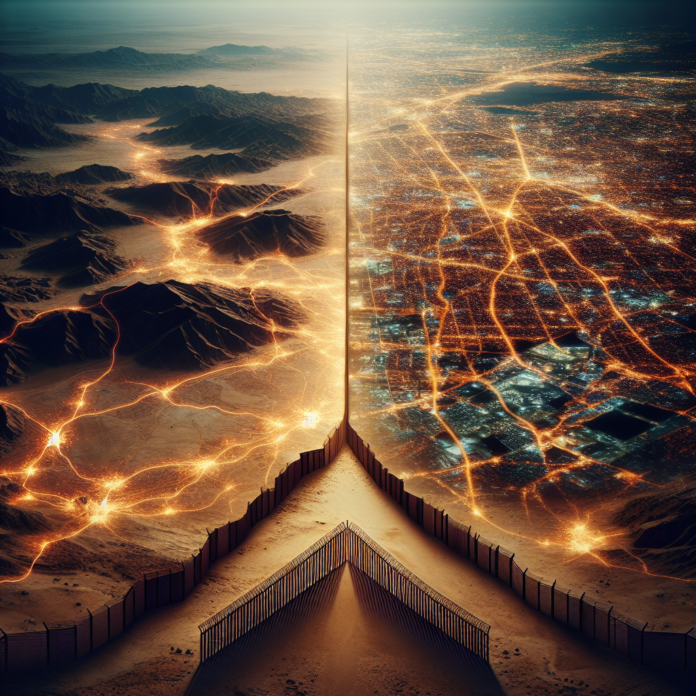Title: The Travel Ban: Analyzing Trump’s Ethical Boundaries
The echoes of history are louder than silence itself, always reverberating when the world makes choices that seem distant yet are so intimately familiar. The travel ban instituted by the Trump administration is not just a policy but a reflection of deep-seated ideological conflicts that have shaped the modern world. At its essence, it showcases a struggle between antiquated traditionalism and a burgeoning progressive value system, challenging us to consider ethical boundaries in contemporary governance.
On January 27, 2017, the Trump administration announced an immigration policy ostensibly designed to prevent potential security threats to the United States. This executive order, known commonly as the travel ban, restricted travel from several predominantly Muslim countries. Critics were quick to deem it discriminatory, arguing it ignored America’s foundational ethos as a haven for the persecuted. While proponents saw it as a necessary precaution, rooted in traditional protective measures, a more profound analysis suggests something far graver—a resurgence of exclusionary ideologies reminiscent of darker chapters in history.
To understand the ethical undertones of this travel ban, we must delve into historical precedents. The late 19th and early 20th centuries witnessed similar restrictive measures. The Chinese Exclusion Act of 1882 and the Immigration Act of 1924 stand as stark reminders of America’s flirtations with anti-immigrant sentiment, reflecting a time when fear outweighed empathy. These policies, now viewed in retrospect as profound ethical missteps, should serve as cautionary tales rather than blueprints for contemporary policy.
Progressive values promote inclusivity, diversity, and empathy—qualities that resonate with the modern world. These values have underpinned social progress from civil rights movements to cultural acceptance. In contrast, traditionalism often clings to a rigid framework, seeking solace in a past that was comfortable for only a select few, as seen in the divisive nature of Trump’s travel ban.
In this context, religious perspectives, particularly within the Catholic Church, offer an illuminating perspective. Pope Francis has championed a narrative of openness and acceptance, deviating markedly from more conservative factions within the Church clinging to outdated traditionalism. His compassionate stance on immigration and his vocal denouncement of building barriers between peoples stand in stark opposition to the culture surrounding the Latin Mass, which often aligns with more conservative, rigid ideologies.
Pope Francis’s push for inclusivity mirrors the ethical arguments against the travel ban. By welcoming diversity and supporting the marginalized, he embodies a departure from Catholic conservatism that too often flourishes in exclusionary doctrines. This conservative orthodoxy, with its preference for the Latin Mass, can sometimes reflect an adherence to cultural insularity—much like the ideological foundations of Trump’s travel ban.
The ethical boundary between safeguarding a nation and embracing the ‘other’ is fraught with dilemmas. Yet, in a globalized world, it is imperative to ask: are we building walls or bridges? Progressive values argue for the latter, ensuring humanity adopts a forward-thinking approach, welcoming diverse narratives and shared human experiences.
History teaches us that restrictive policies often culminate in societal fragmentation rather than unity. Thus, reflecting on Trump’s travel ban from an ethical viewpoint invites scrutiny not just from political and legal realms but from moral ones as well. It serves as a reminder that governance ought to mirror humanity’s greatest qualities—compassion, understanding, and, fundamentally, kindness.
We find, then, that the struggle between traditionalism and progressive values continues to alter the ethical landscape of politics and society. Pope Francis and like-minded leaders remind us of the broader consequences of our choices, urging us to cultivate a culture of acceptance rather than fear. As we navigate the principles guiding our nation’s decisions today, let history challenge us to do better—not just for ourselves but for those yearning to be seen, heard, and welcomed.
In conclusion, the travel ban is more than policy; it is a manifestation of ethical boundaries tested by an era torn between looking back and moving forward. As history repeats, evolving with renewed urgency, it becomes paramount to transcend past errors, embracing a future defined not by exclusion but by empathy, inclusion, and common humanity.
